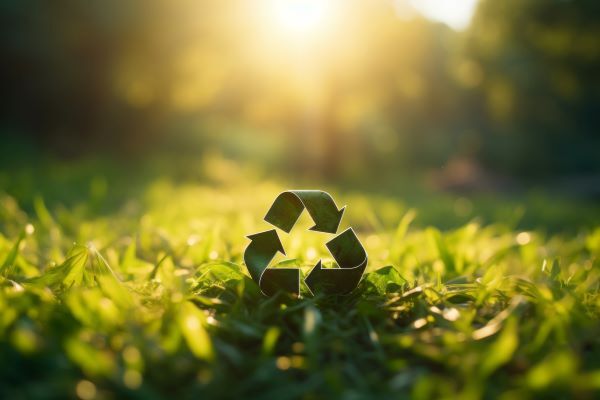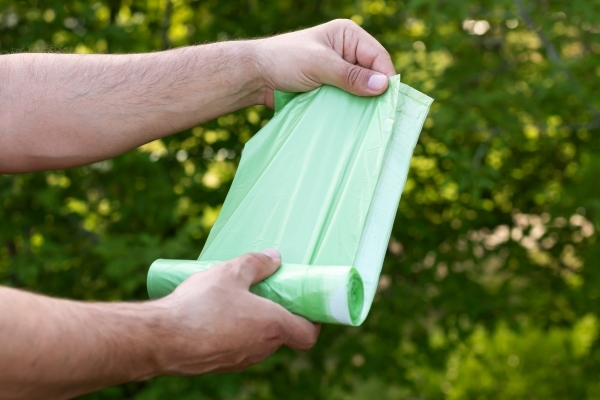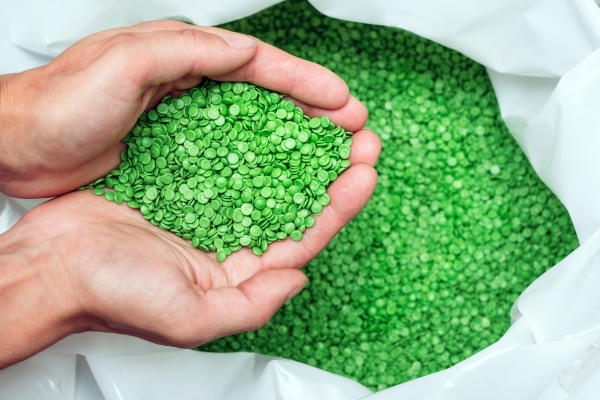
Sustainability has become a pressing issue in today’s world, as the consequences of human activities on the environment have become increasingly apparent. One area where sustainability plays a critical role is in the use of plastics. Plastics have revolutionised the way we live, work, and consume goods, but they also pose significant environmental challenges. From single-use water bottles to grocery bags, plastics are ubiquitous in our daily lives, making it difficult to imagine a future without them.
As a result, there is a growing movement towards sustainable practices that prioritise the reduction of plastic waste and the use of eco-friendly alternatives. Individuals, businesses, and governments must work together to find solutions that minimise the environmental impact of plastics while still meeting societal needs. In this context, degradable polythene presents itself as a viable alternative to traditional plastics.
What is Degradable Polythene?
Degradable polythene is a type of plastic that is designed to break down naturally over time, reducing its impact on the environment. Unlike traditional plastics, degradable polythene is made from renewable resources such as corn starch, sugarcane, or potato starch. These materials are biodegradable, meaning they can be broken down by microorganisms in the soil or water, leaving behind no harmful residues. Additionally, degradable polythene is made from renewable resources, which means it has a lower carbon footprint than traditional plastics.
There are several types of degradable polythene available, each with its own unique properties and applications. For example, polylactic acid (PLA) is a popular type of degradable polythene that is used in packaging, textiles, and 3D printing. PLA is made from corn starch or sugarcane and is biodegradable, compostable, and non-toxic. Another type of degradable polythene is polyhydroxyalkanoates (PHA), which is made from bacterial fermentation of renewable resources such as sugar or lipids. PHA is biodegradable, non-toxic, and has a range of applications including packaging, plastic bags, and medical devices.
While degradable polythene offers several advantages over traditional plastics, it is not without its limitations. For example, it may not be suitable for all applications, and its cost can be higher than traditional plastics. Nevertheless, degradable polythene represents a significant step forward in the development of sustainable materials, and its use is likely to increase in the coming years as consumers and businesses look for eco-friendly alternatives to traditional plastics.
Advantages of Degradable Polythene

Environmental benefits:
The advantages of degradable polythene are numerous and far-reaching, offering both environmental and practical benefits. From an environmental perspective, degradable polythene is biodegradable and compostable, which means it can break down naturally in the environment and does not contribute to the growing problem of plastic waste in landfills and oceans.
In addition to being biodegradable, degradable polythene is also made from renewable resources such as corn starch, sugarcane, or potato starch. This means that unlike traditional plastics, which are made from non-renewable fossil fuels, degradable polythene is a more sustainable alternative that reduces our reliance on finite resources. Furthermore, the production process for degradable polythene requires lower energy consumption and results in fewer greenhouse gas emissions compared to traditional plastics, making it a cleaner and more environmentally friendly option.
Practical benefits:
From a practical standpoint, degradable polythene has several advantages. It can be used for a wide range of applications, including packaging, agriculture, and textiles. Another advantage of degradable polythene is its longer shelf life compared to traditional plastics. Because it is made from renewable resources and is biodegradable, degradable polythene does not leach chemicals into food or water, which means it can extend the freshness of products and reduce food waste. This is especially important in the food industry, where expired products can lead to significant financial losses and contribute to the global food waste crisis.
Finally, degradable polythene can be recycled and reused, further reducing waste and minimising its environmental impact. This closed-loop system allows degradable polythene to be converted back into raw materials that can be used to create new products, reducing the need for virgin materials and conserving natural resources.
Industry Applications
Packaging:
- Food and beverage packaging such as bottles, containers, and disposable cutlery that are biodegradable and compostable.
- Personal care products such as shampoo and conditioner bottles, lotion containers, and lip balm tubes.
- Pharmaceuticals such as pill bottles, capsules, and medical device packaging.
Agriculture:
- Biodegradable mulch films can improve soil health, increase crop yields, and reduce the need for synthetic fertilisers and pesticides.
- Greenhouse Coverings that allow for better light transmission, thermal insulation, and weather resistance.
- Silage bags that are biodegradable and compostable, reducing the amount of plastic waste in agricultural fields and minimising the risk of soil and water pollution.
Textiles:
- Clothing materials that are biodegradable, breathable, and comfortable, reducing the number of synthetic fabrics.
- Upholstery materials that are stain-resistant and easy to clean.
- Carpet materials that are soft, durable, and biodegradable, reducing the amount of plastic waste in flooring materials and improving indoor air quality.
Why Choose Degradable Polythene?

Cost Savings:
Degradable polythene can also provide cost savings for businesses. Traditional plastics often require specialised disposal methods, which can be expensive. Degradable polythene, on the other hand, can be disposed of in regular trash or recycling facilities, reducing disposal costs. Additionally, because it is made from renewable resources, the raw materials for degradable polythene are often less expensive than those for traditional plastics.
Improved Brand Reputation:
Businesses that choose to use degradable polythene can also enhance their brand reputation. Consumers are becoming increasingly environmentally conscious, and they are more likely to support companies that share their values. By using degradable polythene, businesses can demonstrate their commitment to sustainability and appeal to environmentally-minded consumers.
Increased Safety:
Degradable polythene is also safer for people and wildlife. Traditional plastics can contain harmful chemicals that can leach into food and water, posing health risks. Degradable polythene, on the other hand, is made from non-toxic materials that are safe for people and animals.
Convenience:
Finally, degradable polythene is convenient to use. It can be moulded into various shapes and forms, making it versatile for different applications. It is also lightweight and easy to transport, reducing logistical costs for businesses.
Degradable polythene offers a wealth of benefits for businesses and individuals alike. From its environmentally friendly properties to its cost-effectiveness, safety, and convenience, there are numerous reasons why choosing degradable polythene is a smart decision.
As consumers become increasingly aware of the impact of their purchasing decisions on the environment, businesses that adopt eco-friendly practices are likely to see increased customer loyalty and positive word-of-mouth. By switching to degradable polythene, businesses can not only reduce their carbon footprint but also differentiate themselves from competitors and appeal to environmentally conscious customers.
Consider switching to degradable polythene for your business or personal needs today. Not only will you be doing your part to protect the environment, but you’ll also reap the many practical benefits that come with this innovative material. Join the growing movement towards sustainability and make a positive impact on the world around you.